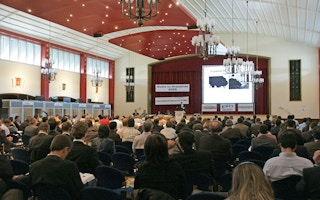Overflowing landfills, growing demand for energy and resources, and the need to reduce greenhouse gas emissions are drivers for change in waste management systems across the world.
When it comes to energy recovery, waste incineration is often the first technology that comes to mind. This is because waste incinerators can handle large amounts of municipal solid waste, reduce volume drastically and recover energy from what we throw away.
But there are challenges in this approach to handling waste. Incinerators need a constant flow of fuel and have difficulty dealing with variations in the amount of waste.
Water doesn’t burn, so humid waste that is typically produced in many Asian countries is not a good fuel for incineration and the energy yield will be low.
Furthermore, incinerators are expensive to build and local municipalities often find it difficult to get financing for such projects. Incinerators are most efficient when they have a bigger capacity, needing more trash than what medium-sized towns can supply.
In these instances, incineration falls short and can be complemented or replaced by mechanical and biological waste treatment technologies, which are more flexible.
Mechanical biological treatment (MBT) follows a different approach to mass burning. Most MBT plants divide their mixed input or sources of waste into a wet fine fraction for biological treatment (composting and/or producing biogas) and a dry coarse fraction that picks out recyclables as well as materials that can become solid fuel with high energy content.
The process upgrades waste to quality solid fuel (RDF/SRF, in industry terms) for efficient energy production and can even produce biogas from wet trash.
The market is full of promising technologies, but which is the right one to choose? Which technologies are approved by governments and what’s the economic viability? How do MBT plants perform over the longer term and how do they compete with other technologies?
The single best place to learn about MBT is where it’s done and demonstrated by the folks who know the most about it. Happening only once every two years, the Waste-to-Resources conference and exhibition in Germany was founded a decade ago by the renowned MBT expert Dr. Matthias Kuehle-Weidemeier, CEO of the Germany-based waste treatment specialists Wasteconsult International.
This year, in cooperation with Germany’s association of MBT operators (ASA), the event will gather experts from 17 countries to present their knowledge of the technology.
The conference will cover a wide range of topics, including:
• Waste management strategies, new waste treatment technologies, source separated collection
• Anaerobic digestion of organic waste fractions
• Practical experience, optimisation and new developments
• Functionality, economic efficiency and life cycle balance
• Energy recovery by refuse derived fuel (RDF) power plants and cement kilns, liquefaction
• Conditioning, use and sale of output fractions from mechanical and biological treatment
• Hydrothermal carbonisation (HTC)
With participants from 41 countries having attended the event’s previous five editions since 2005, Waste-to-Resources is the world’s largest conference on MBT.
In the week before the event, a two-day introduction seminar to MBT is available. This will provide participants with an in-depth understanding of MBT technologies and allow them to benefit from the presentations at the Waste-to-Resources conference.
Waste-to-Resources 2015 is held under the patronage of the German minister of environment Barbara Hendricks. During the entire three-day conference, the organisers will provide continuous simultaneous translation for presentations in English, German and French.
The parallel exhibition brings together knowledgeable participants and market leaders in advanced waste and recycling technology.
The combination of conference, commercial exhibition, and site visits will make Waste-to-Resources 2015 a prime event for operators, authorities, consultants, and technology providers. The conference will be held from 5 to 8 May in Hanover, Germany.
For more details on the programme and for information on exhibition space sponsor packages and further advertising possibilities, click here.


















